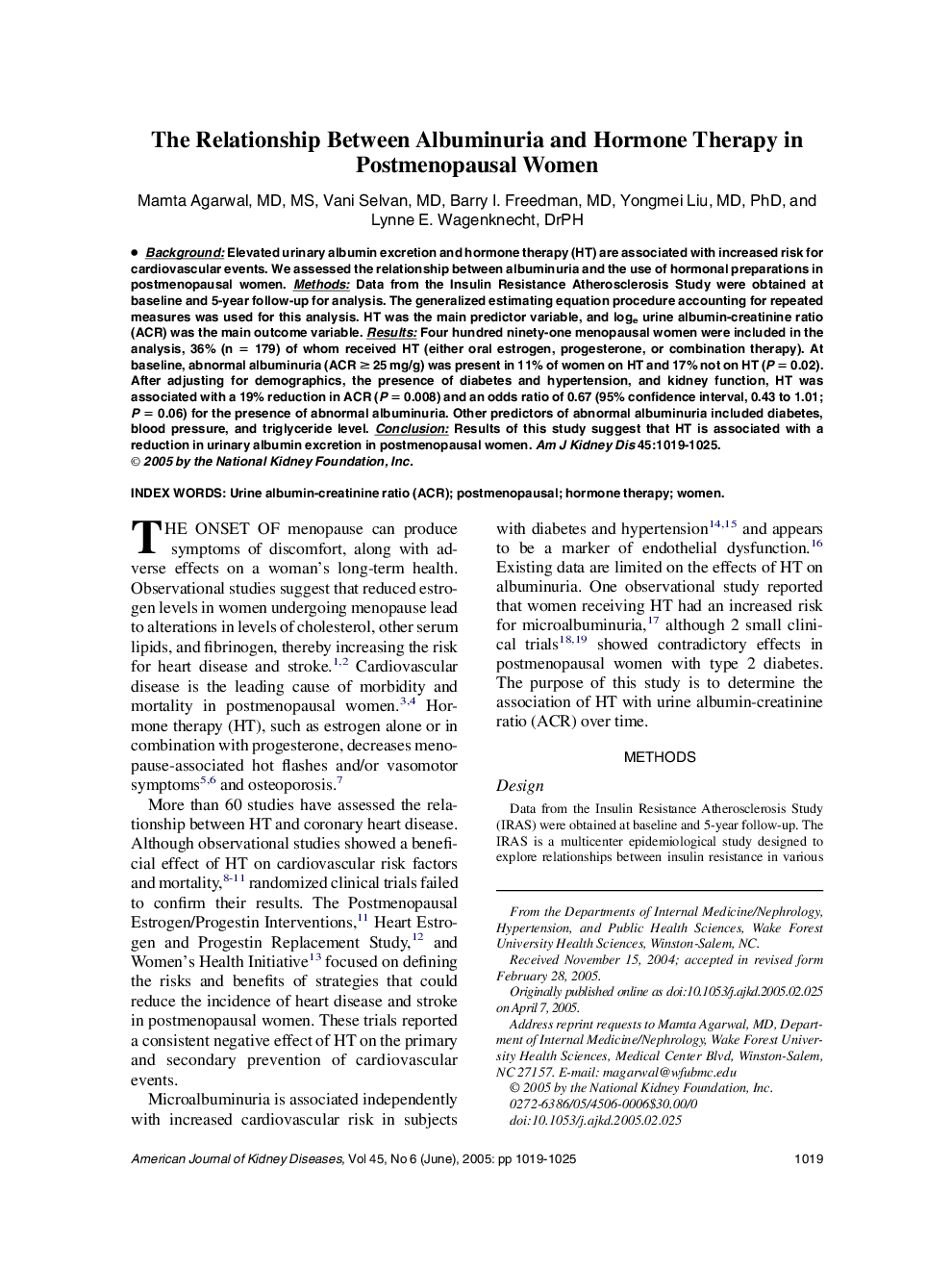| Article ID | Journal | Published Year | Pages | File Type |
|---|---|---|---|---|
| 10047575 | American Journal of Kidney Diseases | 2005 | 7 Pages |
Abstract
Background: Elevated urinary albumin excretion and hormone therapy (HT) are associated with increased risk for cardiovascular events. We assessed the relationship between albuminuria and the use of hormonal preparations in postmenopausal women. Methods: Data from the Insulin Resistance Atherosclerosis Study were obtained at baseline and 5-year follow-up for analysis. The generalized estimating equation procedure accounting for repeated measures was used for this analysis. HT was the main predictor variable, and loge urine albumin-creatinine ratio (ACR) was the main outcome variable. Results: Four hundred ninety-one menopausal women were included in the analysis, 36% (n = 179) of whom received HT (either oral estrogen, progesterone, or combination therapy). At baseline, abnormal albuminuria (ACR ⥠25 mg/g) was present in 11% of women on HT and 17% not on HT (P = 0.02). After adjusting for demographics, the presence of diabetes and hypertension, and kidney function, HT was associated with a 19% reduction in ACR (P = 0.008) and an odds ratio of 0.67 (95% confidence interval, 0.43 to 1.01; P = 0.06) for the presence of abnormal albuminuria. Other predictors of abnormal albuminuria included diabetes, blood pressure, and triglyceride level. Conclusion: Results of this study suggest that HT is associated with a reduction in urinary albumin excretion in postmenopausal women.
Keywords
Related Topics
Health Sciences
Medicine and Dentistry
Nephrology
Authors
Mamta MD, MS, Vani MD, Barry I. MD, Yongmei MD, PhD, Lynne E. DrPH,
